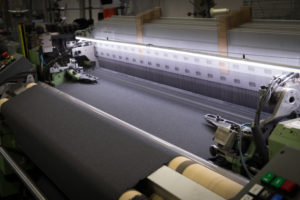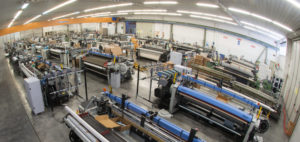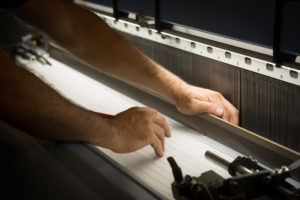

Deep changes occurred in the Italian industry in the last decades; in fact, transnational companies were able to manage value chains on a global scale and stronger and stronger competitors on the world market offering low manufacturing costs moved “made in Italy” styled businesses to engage in a team effort to address new challenges. With a view to meeting this objective, subcontractors become a basic component of the supply chain, being able to offer a flexible, professional cooperation.
«Notwithstanding reductions and deep changes in local enterprise clusters in the last few years, this pattern can still generate a competitive business», Roberto Fossi explains «because all types of businesses in the manufacturing chain within a cluster tend to build a long term relationship that goes beyond the traditional supplier-customer relationship. In fact, each partner in the relationship is ready to cooperate and face the challenge. Together with the historical know-how, these factors create an efficient, creative and innovative mechanism».
The Help of Technology
Tessitura Innocenti e Nesi, though maintaining the value of a family business, has progressively gained an industrial scale with its own organisation and management logics. The total area covered by the business is 5,500 m2 at two locations, one of which boasting of a 197 kW photovoltaic system. With 90 looms, approximately 32 employees and an average daily output ranging between 20 and 22 thousand metres, the weaving mill sells for approximately 5 million Euros a year. The factory can process all types of yarns, natural, artificial and synthetic fibres as well as stretch and non-stretch yarns.

Certainly, a strong point of Tessitura Innocenti e Nesi lies in its size bigger than the average business in the local enterprise cluster. This advantage helps them supply bigger orders or, if need is, deliver in a very short time.
«Within the Prato area enterprise cluster we belong to 5.8% of subcontractor weaving mills with sales in excess of 1 million Euros – Fossi adds – biased to investments and innovation, paying great attention to renewing their fleet and investing in computerization and controls. We have set out on a path of process control that brought us to obtain the ISO 9001 certification: it was our reply to more and more demanding customers, not only in terms of product quality, but also as far as logistics and associated services are concerned. Plus the fact that we have to keep pace with fragmented orders that require a lot of work as well as bigger and bigger organisational efforts».
Willing to improve quality, the company also engaged in implementing an ERP system to integrate, monitor and plan the entire production cycle; in fact, they wired and integrated the fleet with the managing system and the quality control section. Computerisation helped the company improve its organisation, while cutting its lead time and costs and obtaining a higher quality product; above all they were able to offer a shorter delivery time, more flexibility and additional services to customers; just to give an example, they can do warping, sizing, mending and storage of yarns for clients asking for such services.
The Need for Specialized Weavers
Though featuring a better stability than in the recent past, the textile industry still suffers from dome difficulties. Just to give an example, it is growingly difficult to find skilled weavers, and when you find some, they come from abroad. «The latest four weavers we hired were not Italian (they come from Albania, Pakistan and Bengali) and sometimes we are having problems to understand each other and to communicate. If hiring a weaver is a problem, hiring a weaving line manager, highly

skilled and offering a good experience in the field may be a real problem. It is a widening gap between a more and more demanding sector of the industry and a territory no longer prepared to take up the challenge. We understood this being a major risk for a business; hence we recently decided to invest time and resources to organise traineeships and apprenticeship contracts for young people, hoping to be able to add them to our labour force within a couple of years», Fossi finally adds.
The labour issue is a key issue that industry clusters have to face and solve; in fact, a professional workforce is necessary in order to keep manufacturing clusters highly competitive.
Organisational and management skills of subcontractors are getting more and more significant: these firms are aware of their role that makes local industry clusters competitive, representing «Made in Italy»; though going through a difficult time, they react offering their professional competence and responding to the demand of a quickly evolving market.



